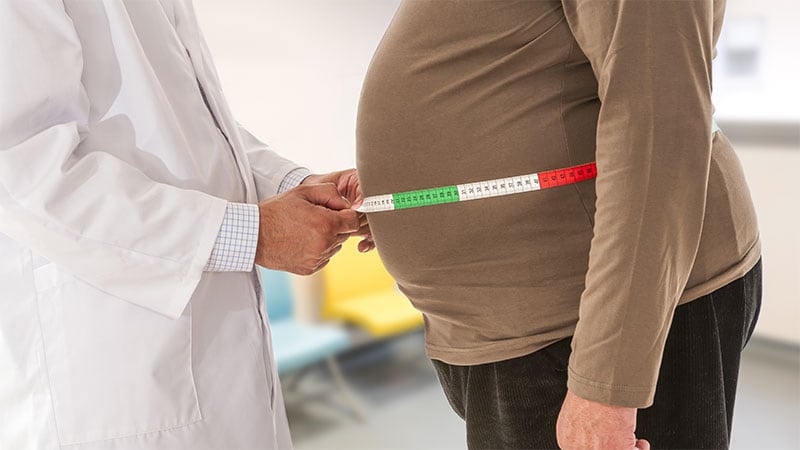TOPLINE:
After 4 weeks, obesity surgery led to rapid, extensive hormonal changes in multiple endocrine pathways, particularly during an oral glucose tolerance test (OGTT), while a low-energy diet achieving similar weight loss did not show these hormonal adaptations.
METHODOLOGY:
- Researchers in Sweden conducted an exploratory analysis of a clinical trial to compare effects of obesity surgery with those of a low-energy diet on gut hormones and multiple hormones of the hypothalamic-pituitary axes, both in the fasting state and after the OGTT.
- They recruited 24 participants with obesity but without diabetes (22 women; BMI, 35-45) and randomly assigned them to either undergo gastric bypass or sleeve gastrectomy without a prior diet or follow a 4-week low‐energy diet (4600 kJ/d) using liquid meal replacements; body weight reduction was comparable with both interventions in the clinical trial.
- Circulating levels of gut, pituitary, adrenal, and thyroid hormones and glucagon were measured at baseline and 4 weeks post‐intervention, both at fasting and following the OGTT.
TAKEAWAY:
- During the OGTT, GLP-1 and peptide YY secretion was significantly increased and prolonged after obesity surgery; however, no change was observed following the low-energy diet (P < .001 for interactions between interventions); fasting levels of these hormones remained unaffected with both interventions.
- Adrenocorticotropin and cortisol levels were significantly increased during the OGTT after obesity surgery vs the low-energy diet (P = .007 and P < .001, respectively, for differences between interventions); neither intervention affected the fasting levels of these hormones.
- Parathyroid hormone levels decreased in both the fasting state and 60-minute post-OGTT following obesity surgery, and the ratio of free triiodothyronine to free thyroxine was decreased after obesity surgery but not after the low-energy diet.
- Prolactin levels during the OGTT were significantly higher after obesity surgery (P = .03 for differences between interventions), whereas fasting levels of sex hormone-binding globulin were increased after both interventions.
IN PRACTICE:
“Remarkably, most of the endocrine effects of OS [obesity surgery] were seen after an oral glucose load and not in the fasting state. These results suggest an OS-specific adaptive response of several endocrine axes to oral glucose, potentially contributing to the favourable effects of OS on energy and glucose homeostasis,” the authors wrote.
SOURCE:
This study was led by Giovanni Fanni, PhD, Clinical Diabetology and Metabolism, Uppsala University, Uppsala, Sweden. It was published online on June 16, 2025, in Diabetes, Obesity and Metabolism.
LIMITATIONS:
The small sample size and the exploratory nature of the analyses were the main limitations. The population consisted of predominantly female participants, and dietary intake was not controlled post-surgery in the obesity surgery group. Moreover, the follow-up was limited to 4 weeks, capturing only short-term endocrine adaptations.
DISCLOSURES:
This study was supported by research grants from AstraZeneca R&D, the Swedish Diabetes Foundation, the European Union’s Horizon Europe Research project, and other sources. Two authors reported being co-founders and part-time employees of Antaros Medical AB. The other authors declared having no relationships or activities that could have influenced their work.
This article was created using several editorial tools, including AI, as part of the process. Human editors reviewed this content before publication.
Source link : https://www.medscape.com/viewarticle/surgery-alters-hormones-more-than-diet-weight-loss-2025a1000ghz?src=rss
Author :
Publish date : 2025-06-24 12:00:00
Copyright for syndicated content belongs to the linked Source.
